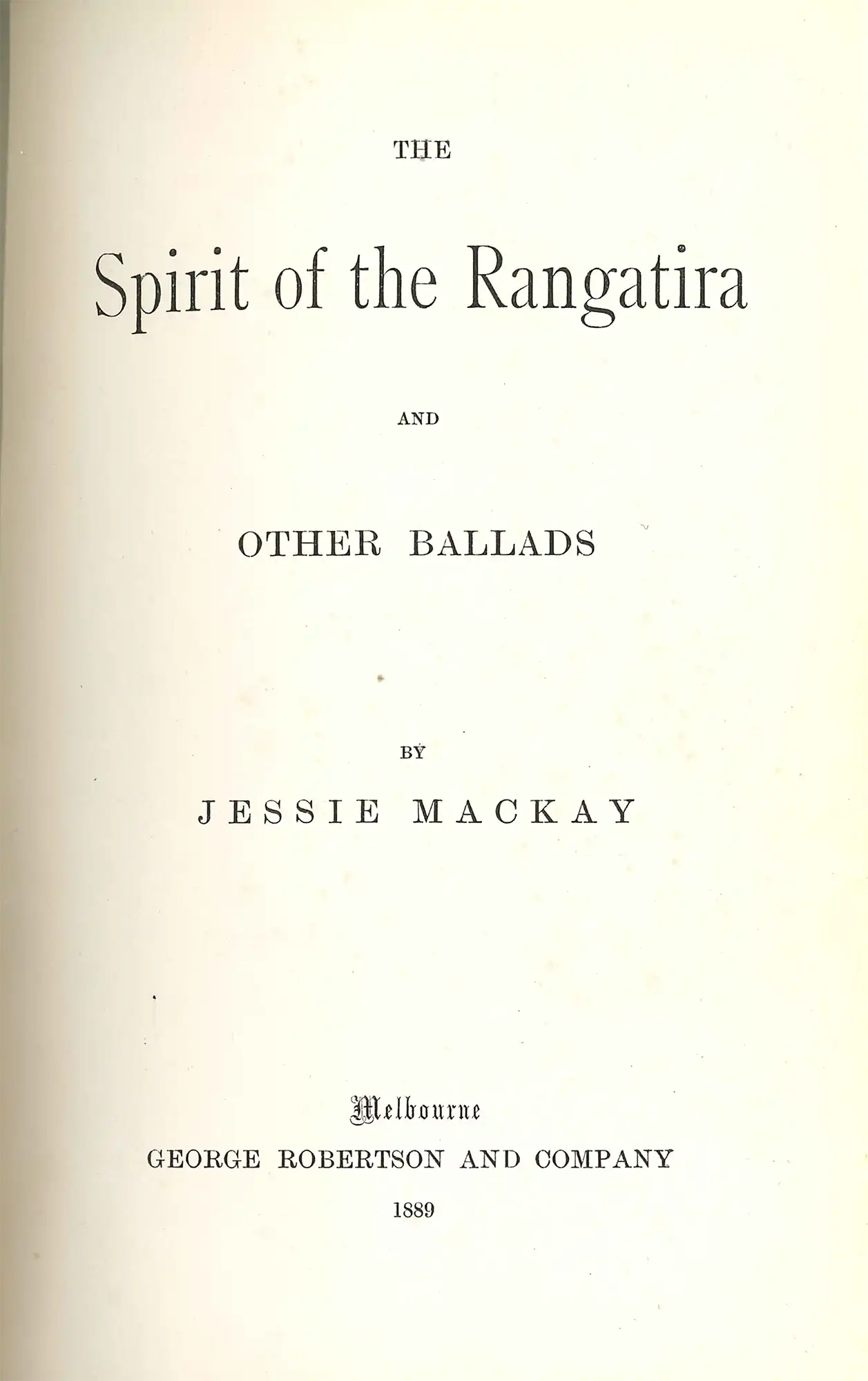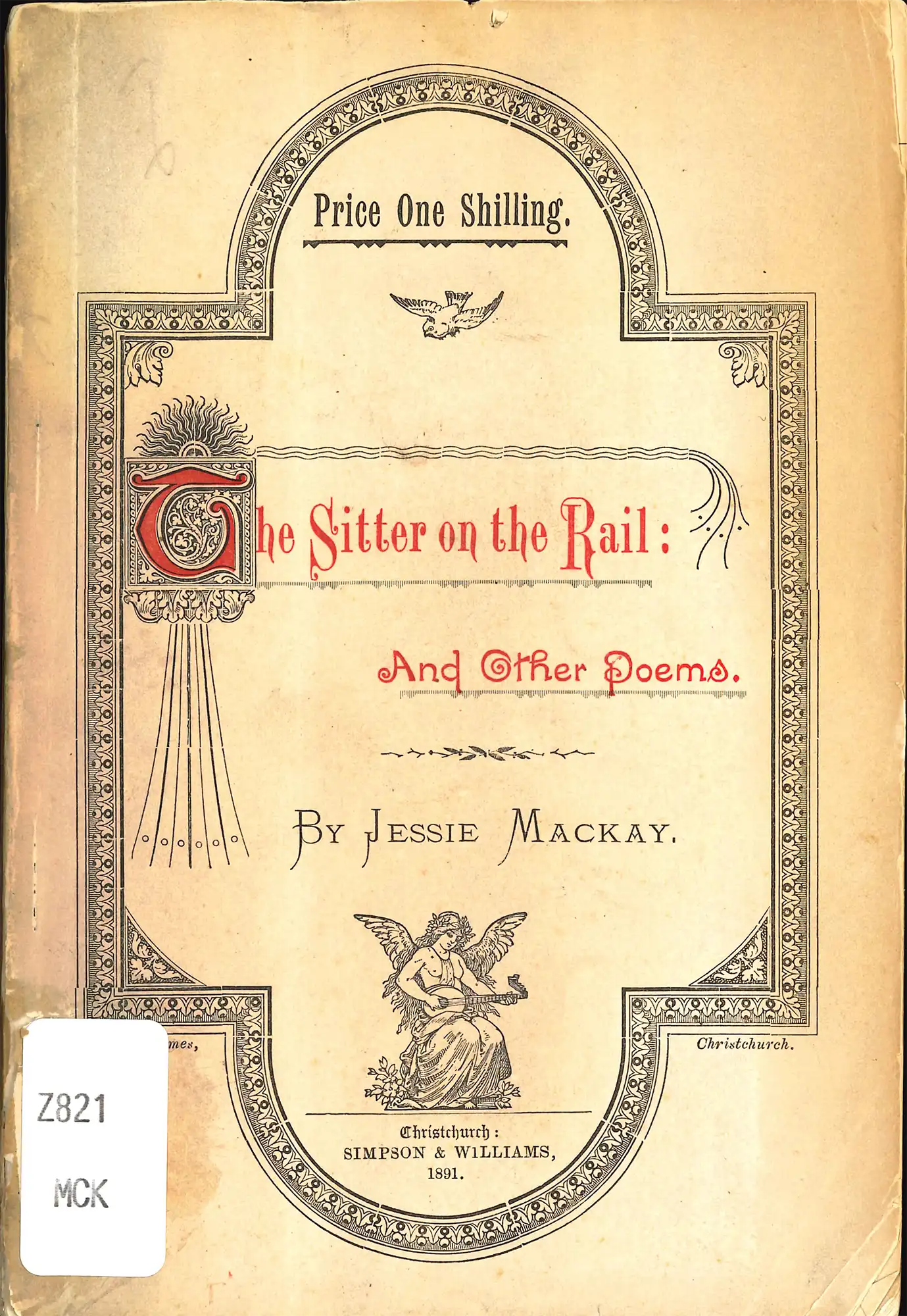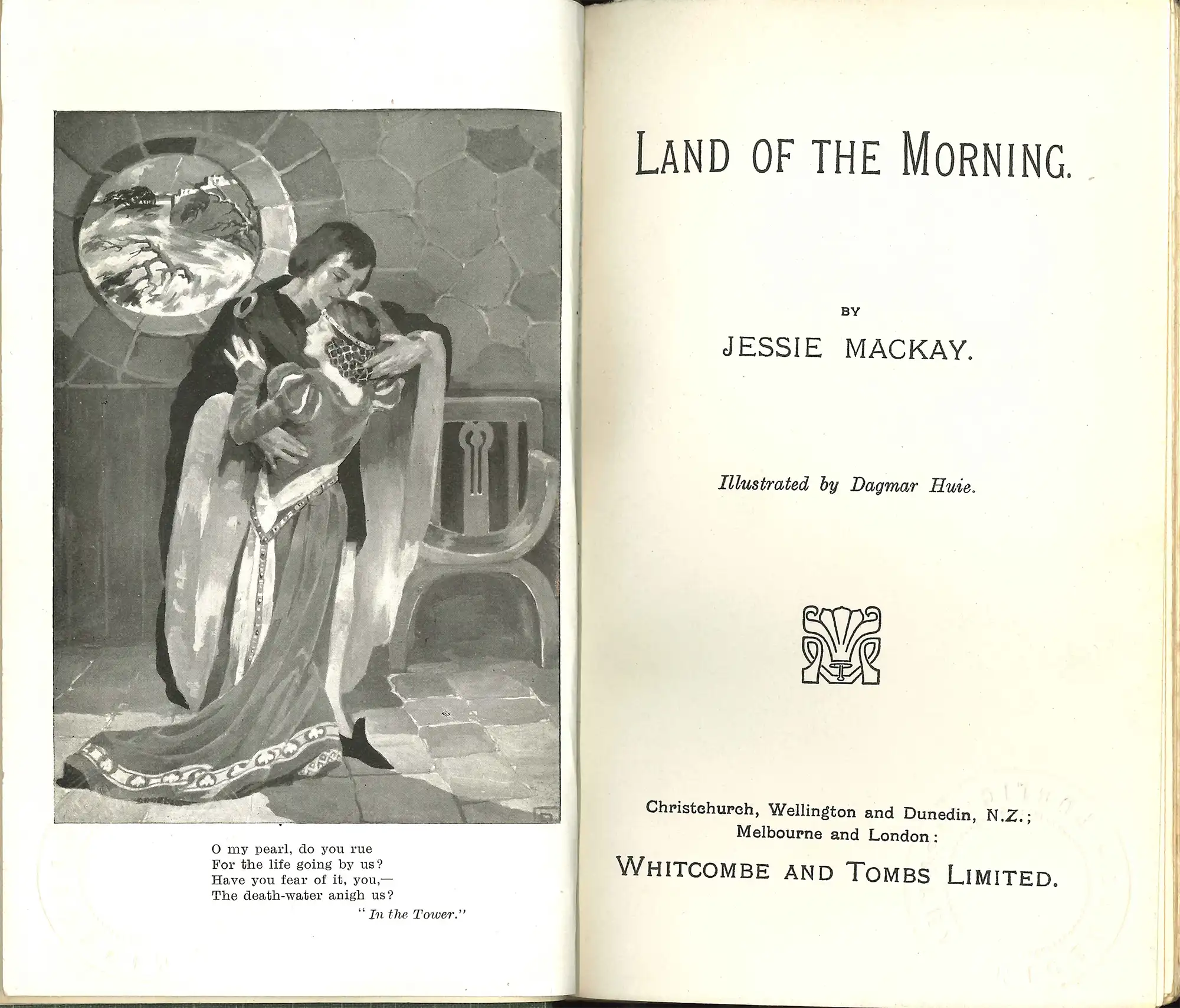Case W1
- Jessie Mackay

Jessie Mackay. The spirit of the rangatira and other ballads. Melbourne: Robertson, 1889.
Jessie Mackay (1864-1938) was a Canterbury-born poet, journalist, teacher and social activist.
Mackay was involved in the suffrage movement in Christchurch in the 1880s and 1890s as a member of the WCTU. Through her journalism she campaigned for prohibition, penal reform, and advocated for the right of women to serve in parliament, the police force, and for better pay for women. In later life she wrote for White Ribbon, the journal of the WCTU, and for numerous English suffragist journals.
Mackay’s first volume of verse The spirit of the rangatira appeared in 1889 when she was 25. The demands of making a living restricted her ability to publish poetry, and The sitter on the rail was her only book of verse published in the 1890s.
Mackay’s affinity with the oppressed is evident in poems such as ‘Cry of Armenia’ and in several others with a Maori theme. Her social justice themes were at times expressed with humour – ‘The sitter on the rail’ was a dig at men who refused to take sides in issues such as women’s suffrage.
Among her close friends were Blanche Baughan, another Canterbury-based poet and activist (See WC2), and the suffragist Kate Sheppard. Mackay also knew the novelists Edith Searle Grossman (Case 14) and G.B. Lancaster (WC5).

Jessie Mackay. The sitter on the rail, and other poems. Christchurch: Simpson and Williams, 1891.
Jessie Mackay (1864-1938) was a Canterbury-born poet, journalist, teacher and social activist.
Mackay was involved in the suffrage movement in Christchurch in the 1880s and 1890s as a member of the WCTU. Through her journalism she campaigned for prohibition, penal reform, and advocated for the right of women to serve in parliament, the police force, and for better pay for women. In later life she wrote for White Ribbon, the journal of the WCTU, and for numerous English suffragist journals.
Mackay’s first volume of verse The spirit of the rangatira appeared in 1889 when she was 25. The demands of making a living restricted her ability to publish poetry, and The sitter on the rail was her only book of verse published in the 1890s.
Mackay’s affinity with the oppressed is evident in poems such as ‘Cry of Armenia’ and in several others with a Maori theme. Her social justice themes were at times expressed with humour – ‘The sitter on the rail’ was a dig at men who refused to take sides in issues such as women’s suffrage.
Among her close friends were Blanche Baughan, another Canterbury-based poet and activist (See WC2), and the suffragist Kate Sheppard. Mackay also knew the novelists Edith Searle Grossman (Case 14) and G.B. Lancaster (WC5).

Jessie Mackay. The sitter on the rail, and other poems. Christchurch: Simpson and Williams, 1891.
Open image in new window

Jessie Mackay. Land of the morning. Christchurch: Whitcombe and Tombs, 1909.
Jessie Mackay (1864-1938) was a Canterbury-born poet, journalist, teacher and social activist.
Mackay was involved in the suffrage movement in Christchurch in the 1880s and 1890s as a member of the WCTU. Through her journalism she campaigned for prohibition, penal reform, and advocated for the right of women to serve in parliament, the police force, and for better pay for women. In later life she wrote for White Ribbon, the journal of the WCTU, and for numerous English suffragist journals.
Mackay’s first volume of verse The spirit of the rangatira appeared in 1889 when she was 25. The demands of making a living restricted her ability to publish poetry, and The sitter on the rail was her only book of verse published in the 1890s.
Mackay’s affinity with the oppressed is evident in poems such as ‘Cry of Armenia’ and in several others with a Maori theme. Her social justice themes were at times expressed with humour – ‘The sitter on the rail’ was a dig at men who refused to take sides in issues such as women’s suffrage.
Among her close friends were Blanche Baughan, another Canterbury-based poet and activist (See WC2), and the suffragist Kate Sheppard. Mackay also knew the novelists Edith Searle Grossman (Case 14) and G.B. Lancaster (WC5).


